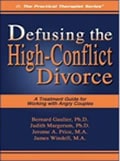
Divorce is similar to other life events that feel like a crisis as they’re developing and being experienced. One definition of a crisis is a major turning point. Another definition is a time of great trouble or difficulty. Separation and divorce definitely fit both these definitions. In fact, for most people who experience a divorce, the definitions would seem like understatement. Typically, crises are times of feeling overwhelmed, devastated, or immobilized. After all, a crisis is a stressful event or situation.
Crisis is usually not as quick as an automobile accident (although an accident could lead to a crisis); rather it’s often an ongoing series of stressful events. The way individuals respond to a crisis — such as divorce with all the issues that need to be handled — will be influenced by several personal aspects. McIntosh and Deacon-Wood (2003) enumerate these factors:
- their personalities
- their coping methods
- their emotions
- their past experiences
- their states of health
- their communication skills
These factors are important in understanding why some individuals adjust to divorce relatively well while others go into an emotional tailspin from which they may never really recover.
 From Defusing the High-Conflict Divorce © 2007 by Bernard Gaulier, Judith Margerum, Jerome A. Price and James Windell. Reproduced for DivorceMagazine.com by permission of Impact Publishers, P.O. Box 6016, Atascadero, CA 93423-6016, U.S.A., Click www.ImpactPublishers.com for more information about this book and its authors. Further reproduction prohibited
From Defusing the High-Conflict Divorce © 2007 by Bernard Gaulier, Judith Margerum, Jerome A. Price and James Windell. Reproduced for DivorceMagazine.com by permission of Impact Publishers, P.O. Box 6016, Atascadero, CA 93423-6016, U.S.A., Click www.ImpactPublishers.com for more information about this book and its authors. Further reproduction prohibited
More Articles from Defusing the High-Conflict Divorce:











Add A Comment